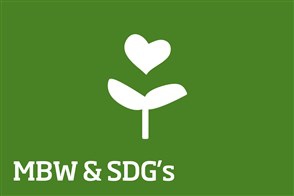Well-being and the Sustainable Development Goals
“Well-being refers to the quality of life here and now and the extent to which it is or is not achieved at the expense of the well-being of future generations and/or people elsewhere in the world.”
Where gross domestic product focuses on the material aspects of life – how much a country consumes and produces, and how much money it earns from this – well-being encompasses all the things that contribute to quality of life. Although a certain degree of material prosperity is indispensable in this respect, for most people ultimately it is the immaterial things that determine how satisfied they are with life: quality of relationships, good health and a pleasant place to live. Alongside these shorter-term aspects, future prospects also play and important role. Will our children be just as well off as we are? Will we leave enough natural resources for them? And will these resources be fairly distributed (equality of opportunities)? Today the Netherlands is a country with close ties to the rest of the world. Many goods the Dutch consume are produced outside the Netherlands. This means that choices that Dutch people make have direct effects on the well-being of people in other countries, especially in the world’s poorest countries.















